Stacker compiled a ranking of the highest-grossing Best Picture winners of the last 50 years, using domestic box office gross from The Numbers.
– Paramount // Getty Images
Charlotte Barnett
The 2024 Oscar nominations were announced on Jan. 23, and there’s already buzz over who might win in the Best Picture category. Will it be a box office hit like “Barbie” or “Oppenheimer”? Or will an indie darling like “The Holdovers” or “American Fiction” take home the gold?
Winning Best Picture at the Oscars can have tangible effects on a film’s financial success. For an already commercially successful film like “Barbie,” the award could be more of a symbolic legitimation of popular opinion, solidifying its cultural relevance for years to come. But for a smaller film like “The Zone of Interest,” a Best Picture win could mean a bump in ticket sales, streaming rentals, and purchases that contribute to its overall gross intake.
Even being nominated for Best Picture can provide a box office bump—earnings for “The Zone of Interest” jumped 141% the weekend following the announcement of this year’s Oscar nominations.
Some Best Picture winners, however, never smash financial records. “CODA,” which won the award at the 2022 Oscars, remains one of the lowest-grossing Best Picture winners ever, and its win didn’t help much with its box office performance. This, however, is partially due to distributor Apple opting for a limited domestic release in theaters in August 2021, with a same-day theatrical and streaming service release of the film on Apple TV+.
Historically, Best Picture winners either start out successfully at the box office or get there with the awards season bump, though the advent of streaming platforms has shrunk that increase in recent years.
To celebrate the impending Best Picture winner, Stacker compiled a ranking of the highest-grossing Best Picture winners of the last 50 years, using domestic box office gross from The Numbers. Box office figures and production budgets were adjusted for inflation based on their release year.
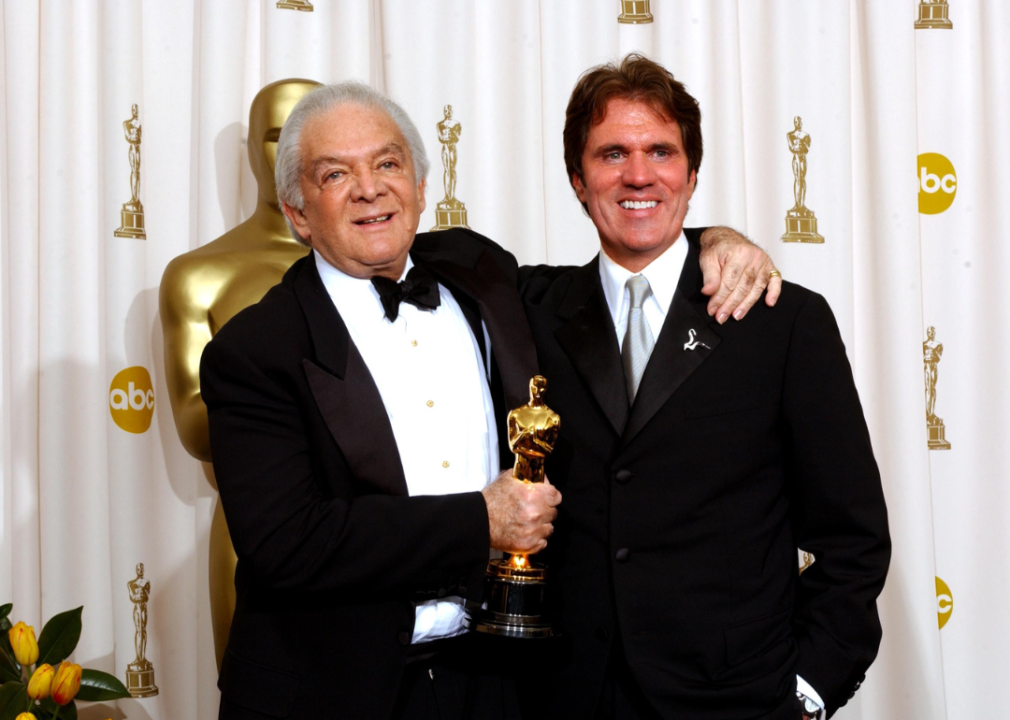
Frank Micelotta // Getty Images
#15. Chicago
– Total domestic gross: $289,098,544
– Production budget: $50,811,895
– Genre: Musical
– Run time: 113 minutes
– Release date: Dec. 27, 2002
– Cast: Catherine Zeta-Jones, Renée Zellweger, Richard Gere
Directed by Rob Marshall, “Chicago” is a big-budget adaptation of the 1975 Broadway musical of the same name. Following the trials of two Jazz-age murderesses, the film became the first musical since 1968’s “Oliver!” to claim the Best Picture award. The film was released in December 2002, mere months before the 2003 ceremony, and was pitted against Roman Polanski’s critically acclaimed drama “The Pianist.” Two decades of Oscars later, the “Chicago” win remains somewhat polarizing, partially due to the notoriously aggressive awards campaigning tactics of executive producer Harvey Weinstein.
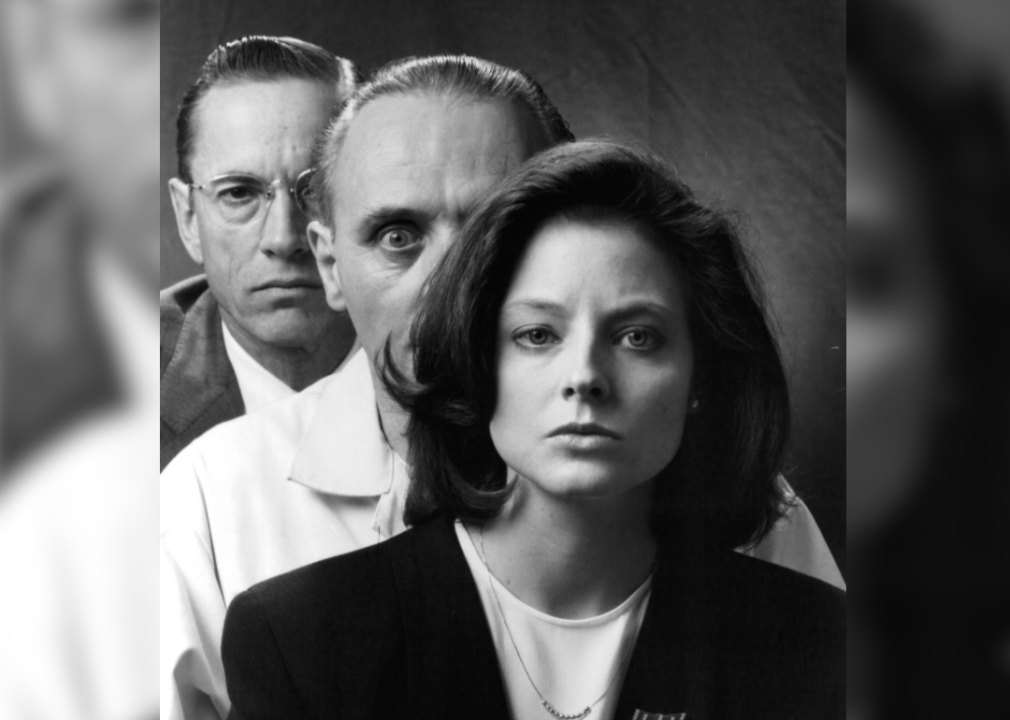
Michael Ochs Archives // Getty Images
#14. The Silence of the Lambs
– Total domestic gross: $292,457,355
– Production budget: $44,743,319
– Genre: Horror
– Run time: 118 minutes
– Release date: Feb. 14, 1991
– Cast: Jodie Foster, Anthony Hopkins, Scott Glenn
“The Silence of the Lambs” stars Jodie Foster as FBI agent Clarice Starling, who’s tasked with seeking the aid of an incarcerated, cannibalistic serial killer—Anthony Hopkins as Hannibal Lecter—in her search for another, at-large serial killer. Written by Ted Tally and directed by Jonathan Demme, the film swept the 64th Academy Awards, with Oscars not only for Best Picture, but also Best Adapted Screenplay, Best Director, Best Actor, and Best Actress—otherwise known as the “big five” awards. It remains only the third film in history to have swept in these categories, following in the footsteps of 1975’s “One Flew Over the Cuckoo’s Nest” and 1934’s “It Happened One Night.”
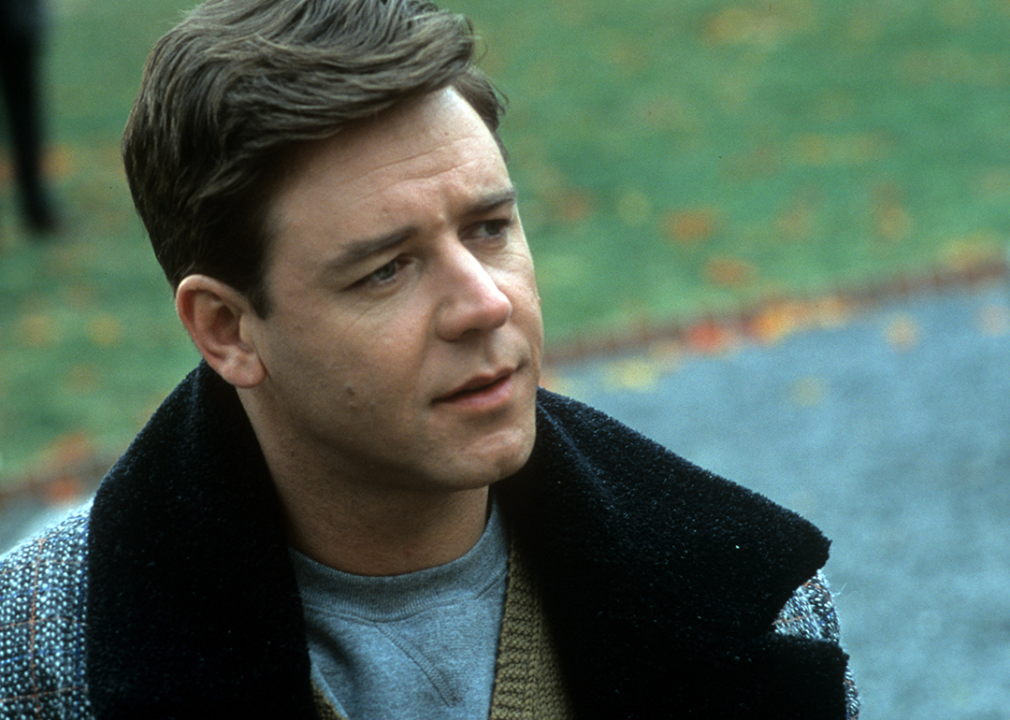
Universal // Getty Images
#13. A Beautiful Mind
– Total domestic gross: $293,706,225
– Production budget: $134,199,639
– Genre: Drama
– Run time: 134 minutes
– Release date: Dec. 21, 2001
– Cast: Russell Crowe, Ed Harris, Jennifer Connelly
“A Beautiful Mind” follows the career of a brilliant mathematician and his ongoing struggle with schizophrenia. The film, which received rave reviews from critics like Roger Ebert, stars Russell Crowe and Jennifer Connelly and was directed by Ron Howard. At the 74th Academy Awards, in addition to the film winning Best Picture and Best Adapted Screenplay, Howard and Connelly took home awards for Best Director and Best Supporting Actress, respectively. Crowe lost the award for Best Actor to Denzel Washington, who won for his performance in “Training Day.”
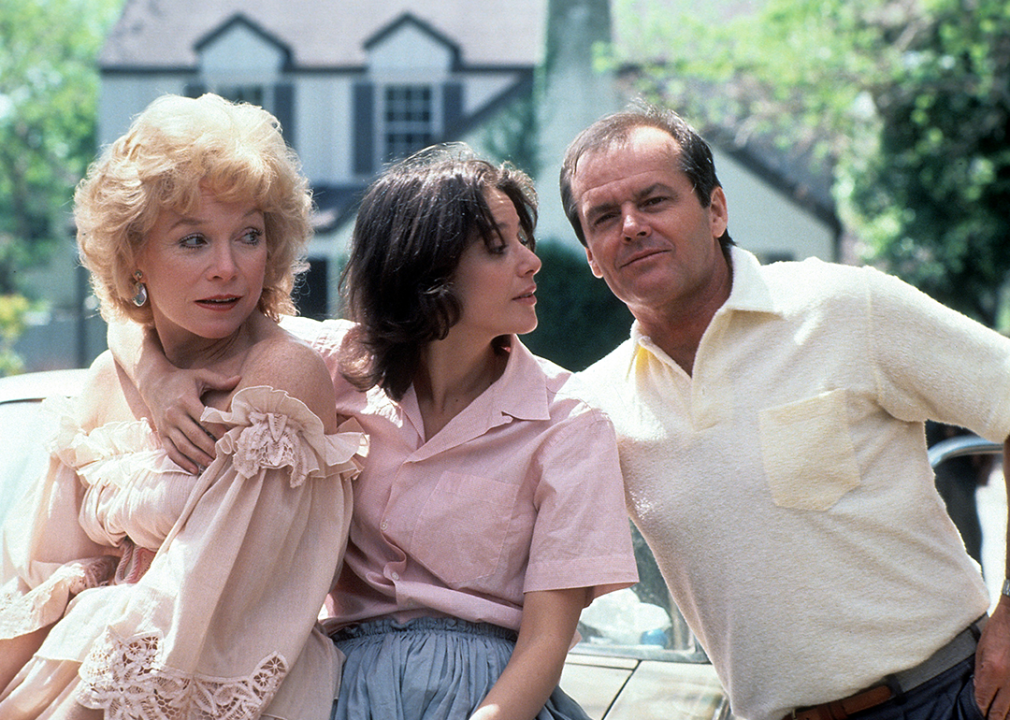
Paramount Pictures // Getty Images
#12. Terms of Endearment
– Total domestic gross: $331,695,321
– Production budget: Data not available
– Genre: Drama
– Run time: 131 minutes
– Release date: Nov. 23, 1983
– Cast: Debra Winger, Shirley MacLaine, Jack Nicholson
Adapted and directed by James L. Brooks, “Terms of Endearment” is a heartstring-pulling depiction of the ever-evolving relationship between a mother, played by Shirley MacLaine, and her daughter, portrayed by Debra Winger. Brooks won Best Adapted Screenplay and Best Director, as well as Best Picture for the film, while MacLaine won Best Actress, and Jack Nicholson nabbed Best Supporting Actor. Going into production, Brooks reportedly wasn’t sure how well such a tear-jerking comedy would perform, but the film was a box office success, only coming second to “Return of the Jedi” that year.
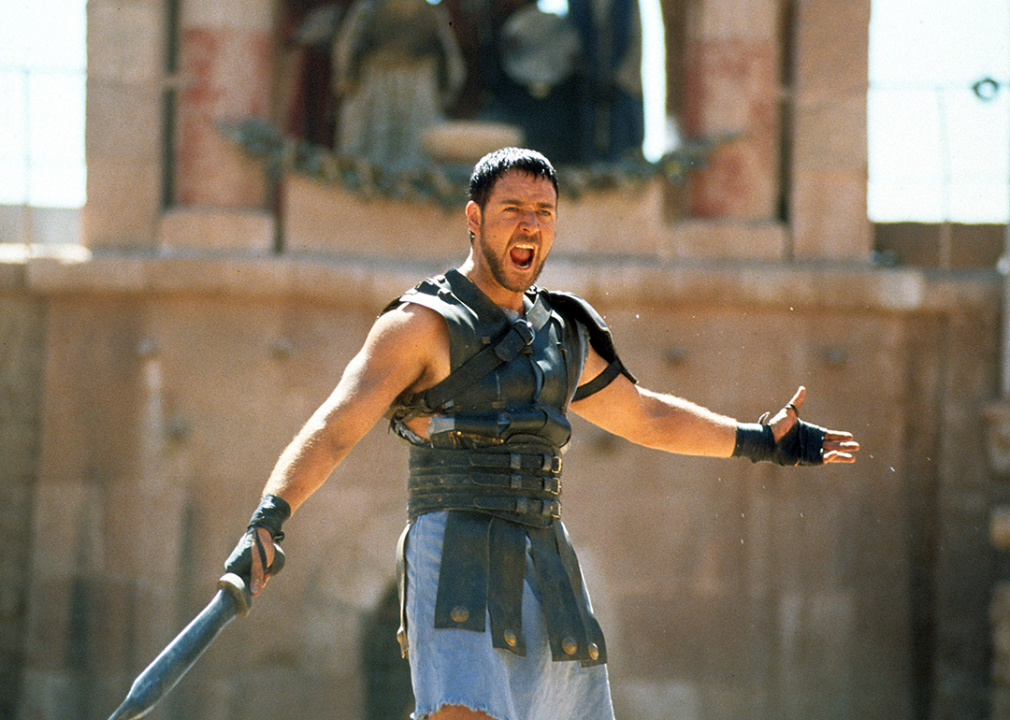
Universal // Getty Images
#11. Gladiator
– Total domestic gross: $332,100,062
– Production budget: $182,254,971
– Genre: Action
– Run time: 154 minutes
– Release date: May 5, 2000
– Cast: Russell Crowe, Joaquin Phoenix, Connie Nielsen
A classic revenge story, “Gladiator” follows a former Roman general who seeks vengeance against the man who ruined his life. Directed by Ridley Scott, the film became the first Best Picture winner in 51 years to not also win Best Director or Best Screenplay, with “All the King’s Men” being the last film to accomplish the same feat. Russell Crowe, however, won his first and only Oscar for Best Actor for his performance as Maximus.
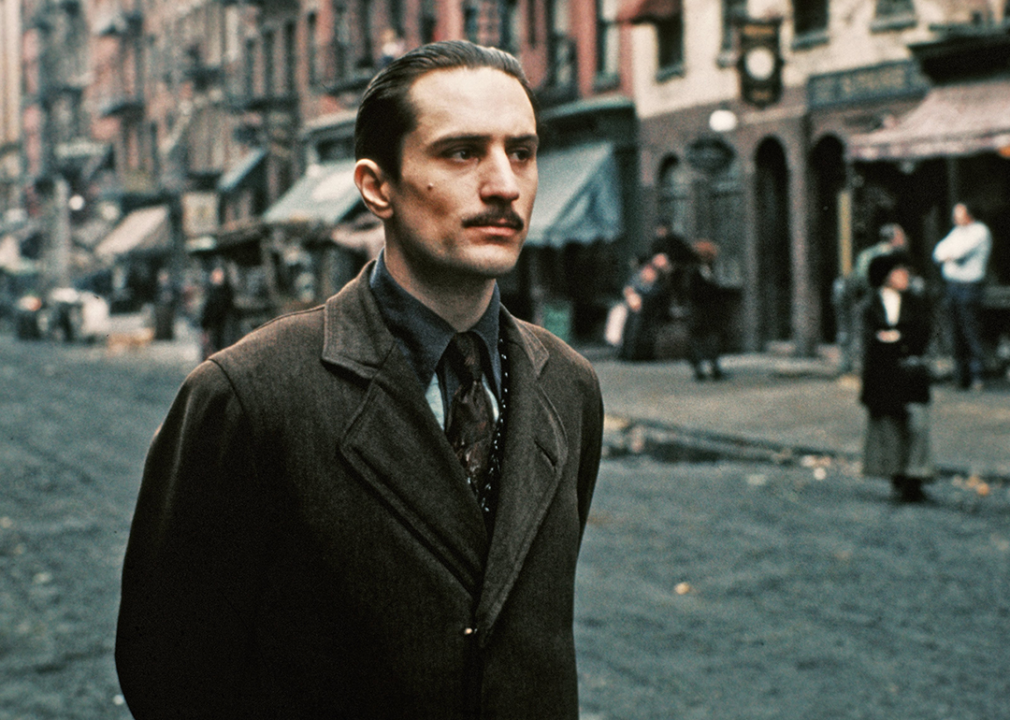
Michael Ochs Archive // Getty Images
#10. The Godfather Part II
– Total domestic gross: $354,146,544
– Production budget: $80,347,383
– Genre: Drama
– Run time: 202 minutes
– Release date: Dec. 11, 1974
– Cast: Al Pacino, Robert De Niro, Diane Keaton
“The Godfather Part II” depicts the origin story of the trilogy’s titular godfather, Don Corleone, while simultaneously picking up where the first film left off with his son, Michael. The film’s success at the Oscars was significant for several reasons: It became the first sequel to ever win Best Picture, and it doubled the number of awards won by its predecessor. Three of the six Oscars picked up by “The Godfather Part II” were for Francis Ford Coppola in Best Picture, Best Director, and Best Adapted Screenplay.
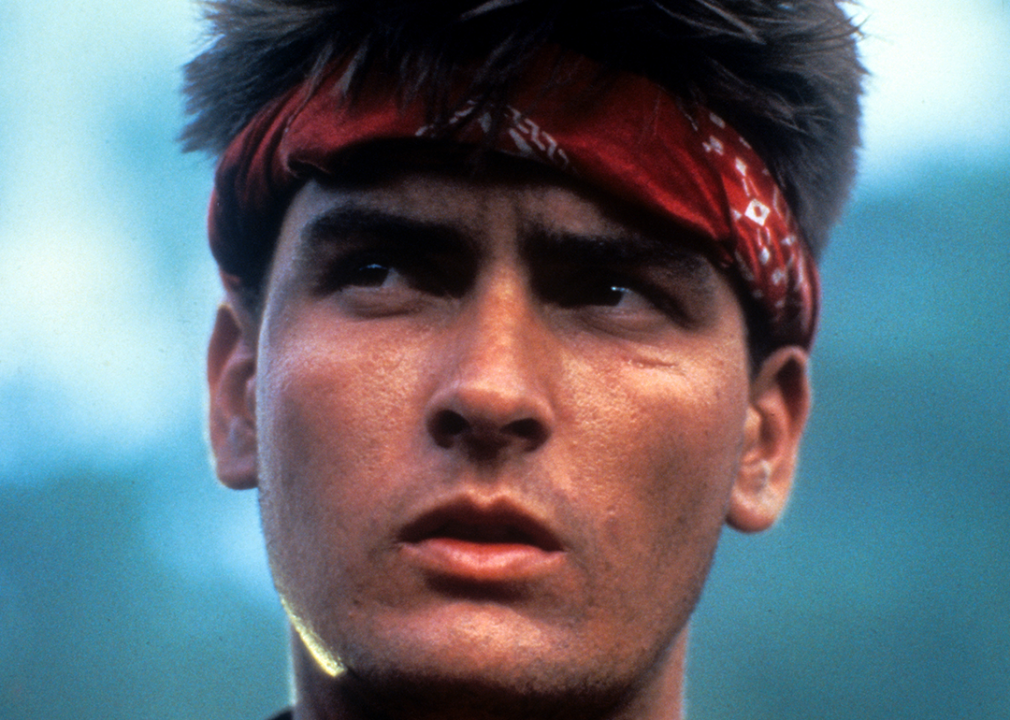
Orion // Getty Images
#9. Platoon
– Total domestic gross: $383,555,675
– Production budget: $16,680,766
– Genre: Drama
– Run time: 119 minutes
– Release date: Dec. 19, 1986
– Cast: Tom Berenger, Willem Dafoe, Charlie Sheen
Charlie Sheen plays Chris Taylor, an army recruit in Vietnam who finds himself morally conflicted and caught between the dueling perspectives of two sergeants. Writer and director Oliver Stone took home Best Director for the film. Though it was an overall box office success, “Platoon” didn’t reach #1 at the box office until six weeks after its initial release. It stayed in a top three spot from that point all the way through its Oscars win on March 30, 1987.
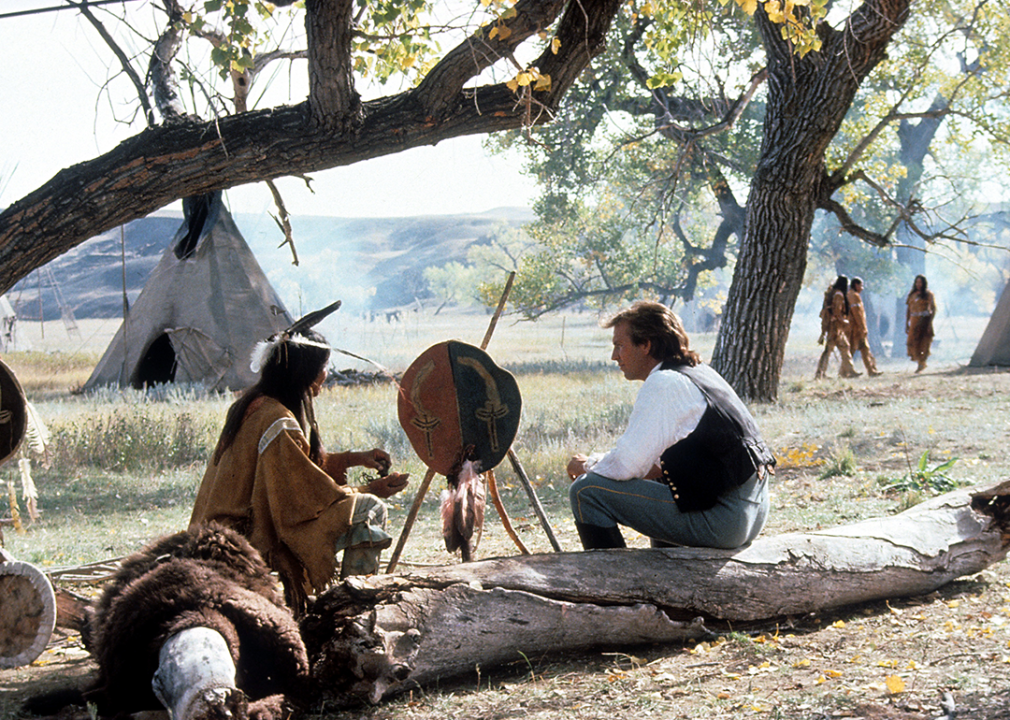
Tig Productions // Getty Images
#8. Dances with Wolves
– Total domestic gross: $429,447,610
– Production budget: $44,294,858
– Genre: Western
– Run time: 181 minutes
– Release date: Nov. 9, 1990
– Cast: Kevin Costner, Mary McDonnell, Graham Greene
Directed by and starring Kevin Costner, “Dances with Wolves” centers on the existential relationship a Civil War soldier develops with a nearby Sioux settlement. The film became the first Western genre film to win Best Picture since 1931’s “Cimarron.” The film won seven Oscars, including Best Director and Best Adapted Screenplay. Its success at the Academy Awards was, at the time, credited with saving the failing Orion Pictures production company. Though the film, which never made it to the #1 spot at the box office, had already been in theaters for four months, its spot at the box office jumped from #6 to #3 in the week following its big wins.
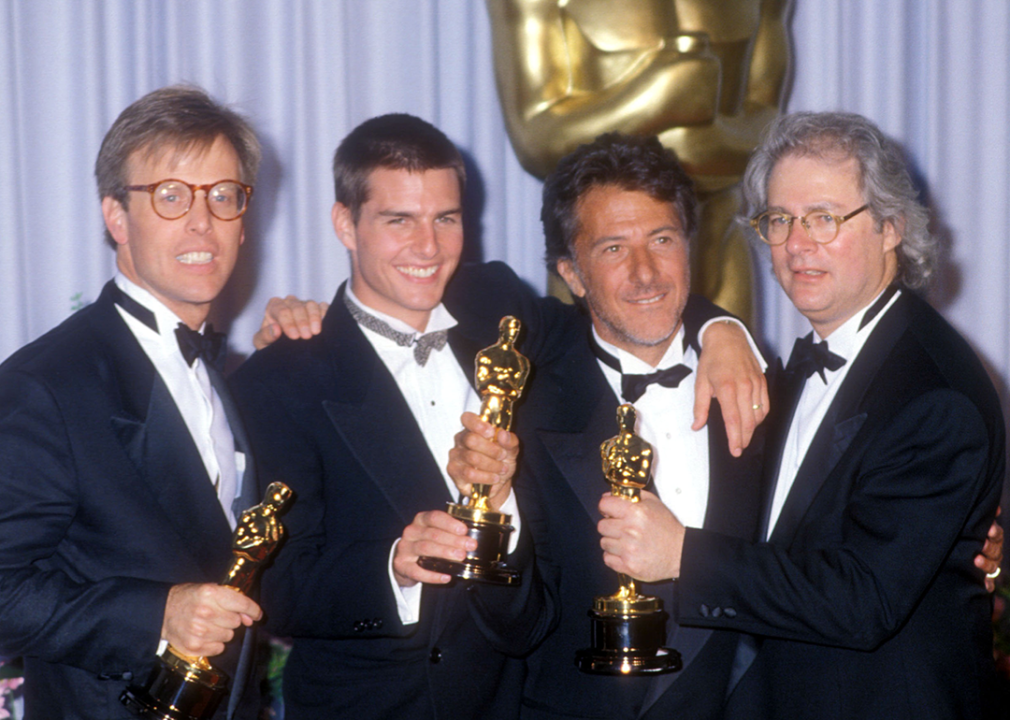
Barry King/WireImage // Getty Images
#7. Rain Man
– Total domestic gross: $445,141,637
– Production budget: $64,391,801
– Genre: Comedy
– Run time: 133 minutes
– Release date: Dec. 16, 1988
– Cast: Dustin Hoffman, Tom Cruise, Valeria Golino
“Rain Man” follows a young man, played by Tom Cruise, who finds out his estranged father has left a large inheritance to his previously unknown brother who is autistic, depicted by Dustin Hoffman. Though celebrated at the time for its inclusion of a character with autism, the film’s representation has since been criticized for falling into stigmatizing stereotypes. Directed by Barry Levinson, the film went on to win Best Director, Best Original Screenplay, and Best Actor for Hoffman, in addition to Best Picture. “Rain Man” was an instant box office success and became the highest-grossing picture of 1988.
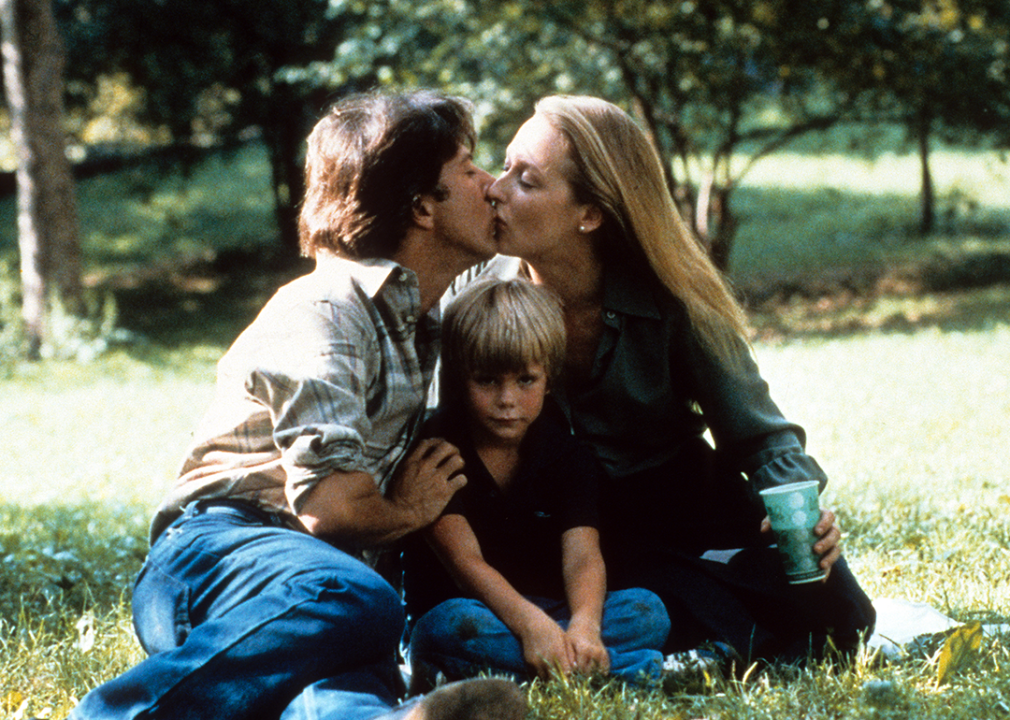
Columbia Pictures // Getty Images
#6. Kramer vs. Kramer
– Total domestic gross: $445,972,927
– Production budget: Data not available
– Genre: Drama
– Run time: 105 minutes
– Release date: Dec. 19, 1979
– Cast: Dustin Hoffman, Meryl Streep, Justin Henry
In “Kramer vs. Kramer,” Dustin Hoffman plays a workaholic father who has to learn how to parent when his wife leaves him and his young son, leading to a messy divorce. The film took home five Oscars, including a Best Actor win for Hoffman, and Meryl Streep earned her first-ever acting Oscar for her star-making performance. The film was up against Francis Ford Coppola’s now-classic war film “Apocalypse Now” for the title of Best Picture, which it also beat out at the Golden Globes that year.
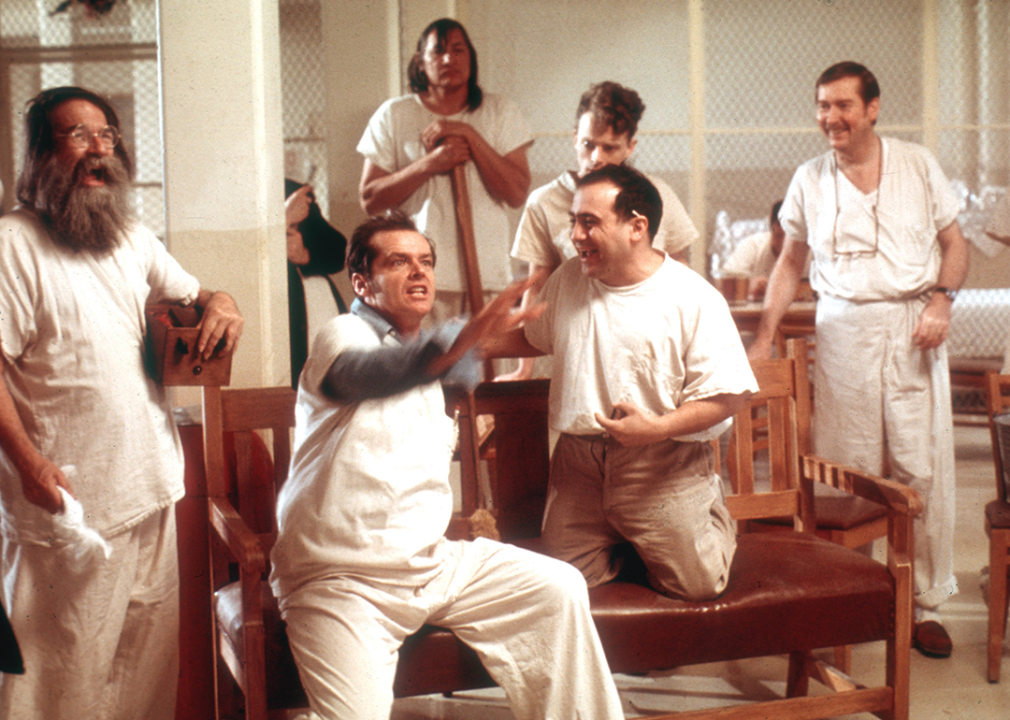
Michael Ochs Archives // Getty Images
#5. One Flew Over the Cuckoo’s Nest
– Total domestic gross: $617,226,997
– Production budget: $24,919,866
– Genre: Drama
– Run time: 133 minutes
– Release date: Nov. 19, 1975
– Cast: Jack Nicholson, Louise Fletcher, Brad Dourif
Another Best Picture winner that took home the “big five,” “One Flew Over the Cuckoo’s Nest” is an adaptation of Ken Kesey’s novel of the same name. The film follows Jack Nicholson as Korean War veteran R.P. McMurphy, who pleads insanity during a criminal trial and winds up organizing a coup in the mental hospital where he is admitted. It was only the second film to ever sweep the top five Oscars categories, and the last to do so until “The Silence of the Lambs.” “Cuckoo’s Nest” was the second-highest-grossing film of 1975, kept from the top spot only by Steven Spielberg’s blockbuster “Jaws.”
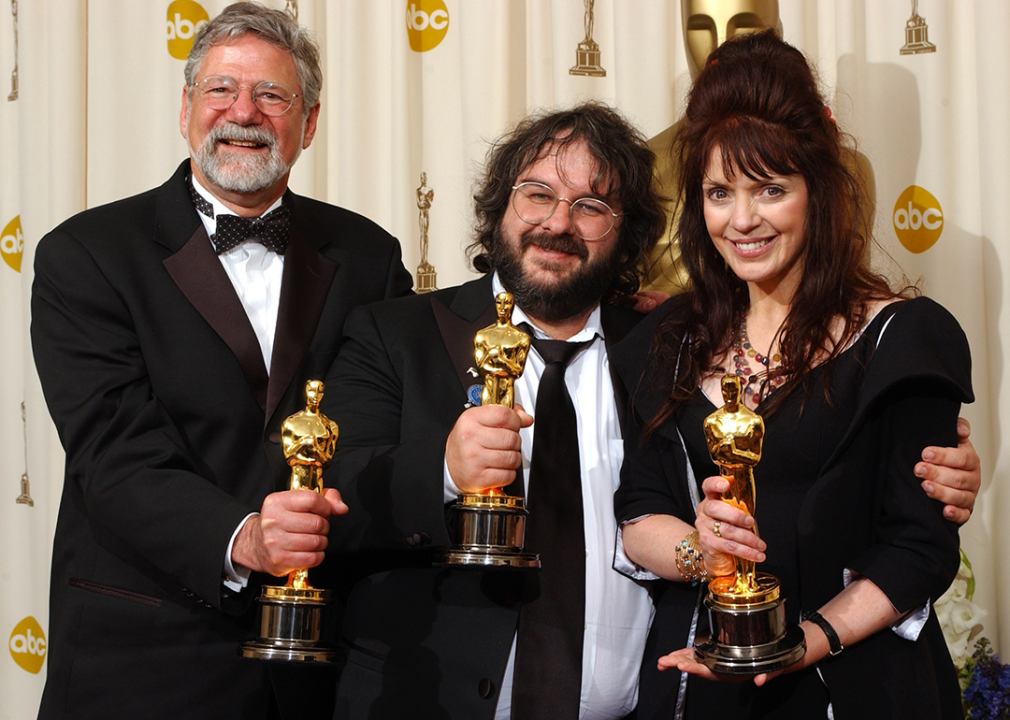
J. Vespa/WireImage // Getty Images
#4. The Lord of the Rings: The Return of the King
– Total domestic gross: $627,656,296
– Production budget: $155,662,978
– Genre: Adventure
– Run time: 201 minutes
– Release date: Dec. 17, 2003
– Cast: Elijah Wood, Viggo Mortensen, Sean Astin
The last in director Peter Jackson’s “Lord of the Rings” trilogy, “The Return of the King” follows the end of Frodo and Sam’s quest to save Middle-earth. The film was a huge commercial success, ranking 53rd on the list of domestic box office giants. The film was also a major critical success and won each of the 11 categories for which it was nominated at the Oscars, including Best Director and Best Adapted Screenplay. “The Return of the King” and “The Godfather Part II,” remain the only sequels to ever win Best Picture.
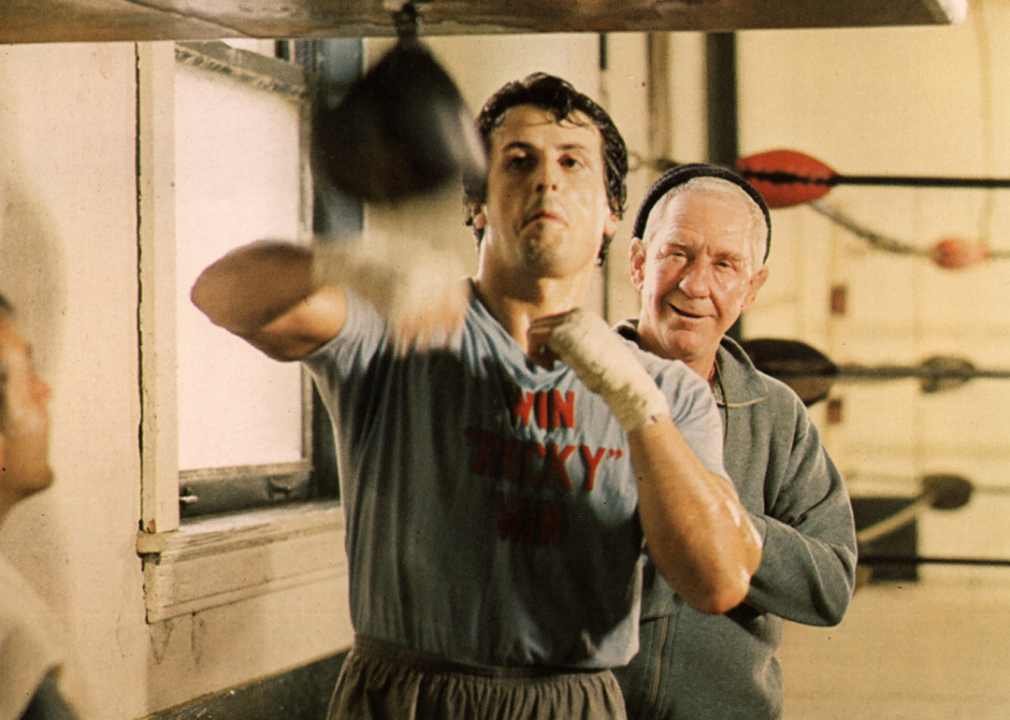
FilmPublicityArchive/United Archives via Getty Images
#3. Rocky
– Total domestic gross: $627,799,363
– Production budget: $5,355,044
– Genre: Drama
– Run time: 119 minutes
– Release date: Nov. 21, 1976
– Cast: Sylvester Stallone, Talia Shire, Burt Young
In the sports drama “Rocky,” a little-known Philadelphia boxer gets a big opportunity to fight a heavyweight champion. This film launched Sylvester Stallone’s career and spawned an iconic franchise that currently includes nine installments. Though it was a relatively low-budget film of just under $1 million, “Rocky” went on to become the highest-grossing film of 1976. Stallone was nominated for Best Actor and Best Screenplay but did not win for either. “Rocky” director John G. Avildsen, however, won the directing prize.
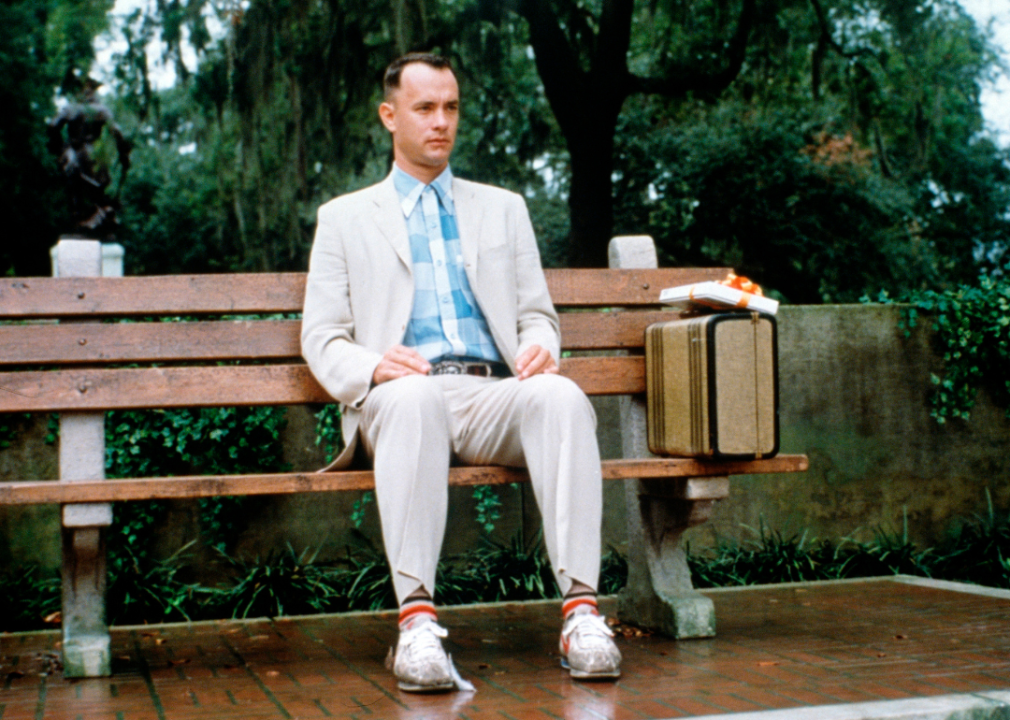
Sunset Boulevard // Getty Images
#2. Forrest Gump
– Total domestic gross: $678,796,977
– Production budget: $113,081,039
– Genre: Drama
– Run time: 142 minutes
– Release date: July 6, 1994
– Cast: Tom Hanks, Robin Wright, Gary Sinise
“Forrest Gump” follows the titular character, played by Tom Hanks, as he retells the historical events—and the role he played in them—of the cultural revolution that occurred between the 1950s and 1970s. Though Hanks has admitted he wasn’t sure that the film would be a success, “Forrest Gump” won six Oscars, including Best Actor, Best Director, and Best Adapted Screenplay. In a 2015 polling of hundreds of Academy members by The Hollywood Reporter, however, voters retrospectively preferred “The Shawshank Redemption” to “Gump” for Best Picture.
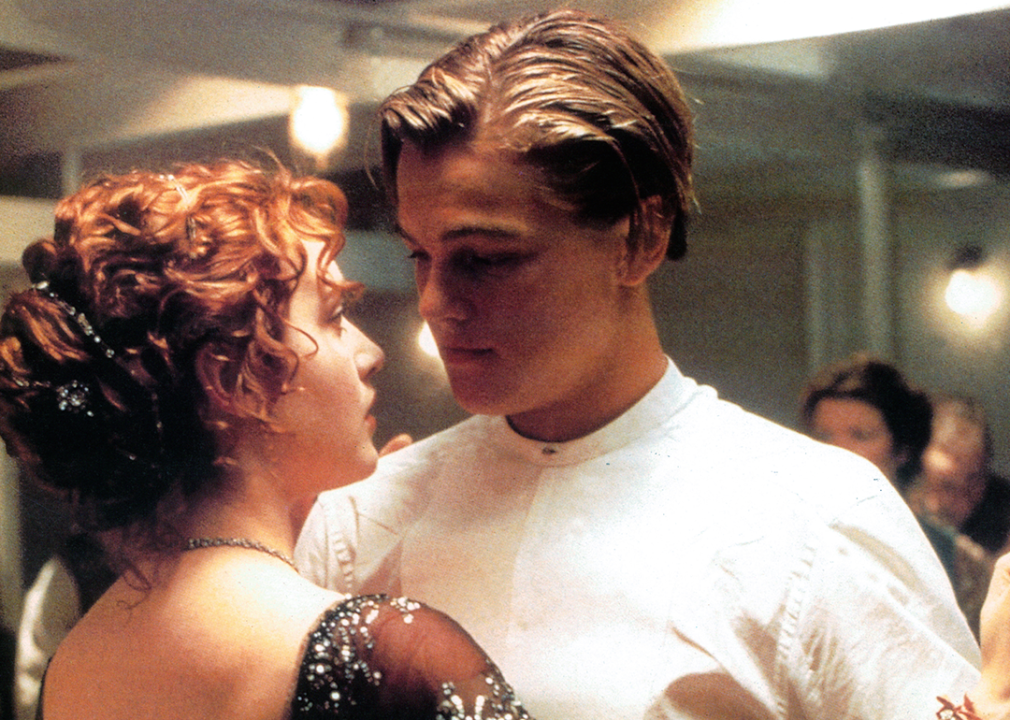
20th Century-Fox // Getty Images
#1. Titanic
– Total domestic gross: $1,280,431,868
– Production budget: $379,690,966
– Genre: Drama
– Run time: 194 minutes
– Release date: Dec. 19, 1997
– Cast: Leonardo DiCaprio, Kate Winslet, Billy Zane
Kate Winslet and Leonardo DiCaprio cemented their movie-star status by playing Rose and Jack, star-crossed lovers aboard the historically doomed Titanic, in writer-director James Cameron’s epic romance. “Titanic” was an instant commercial and critical success, taking the throne as the highest-grossing film of all time, where it remained until Cameron’s “Avatar” surpassed it in 2009. The 70th Academy Awards became the most watched Oscars of all time, thanks in part to the film’s success. “Titanic” went on to win 11 of the 14 awards for which it was nominated.
Data reporting by Karim Noorani. Story editing by Eliza Siegel. Copy editing by Tim Bruns.
